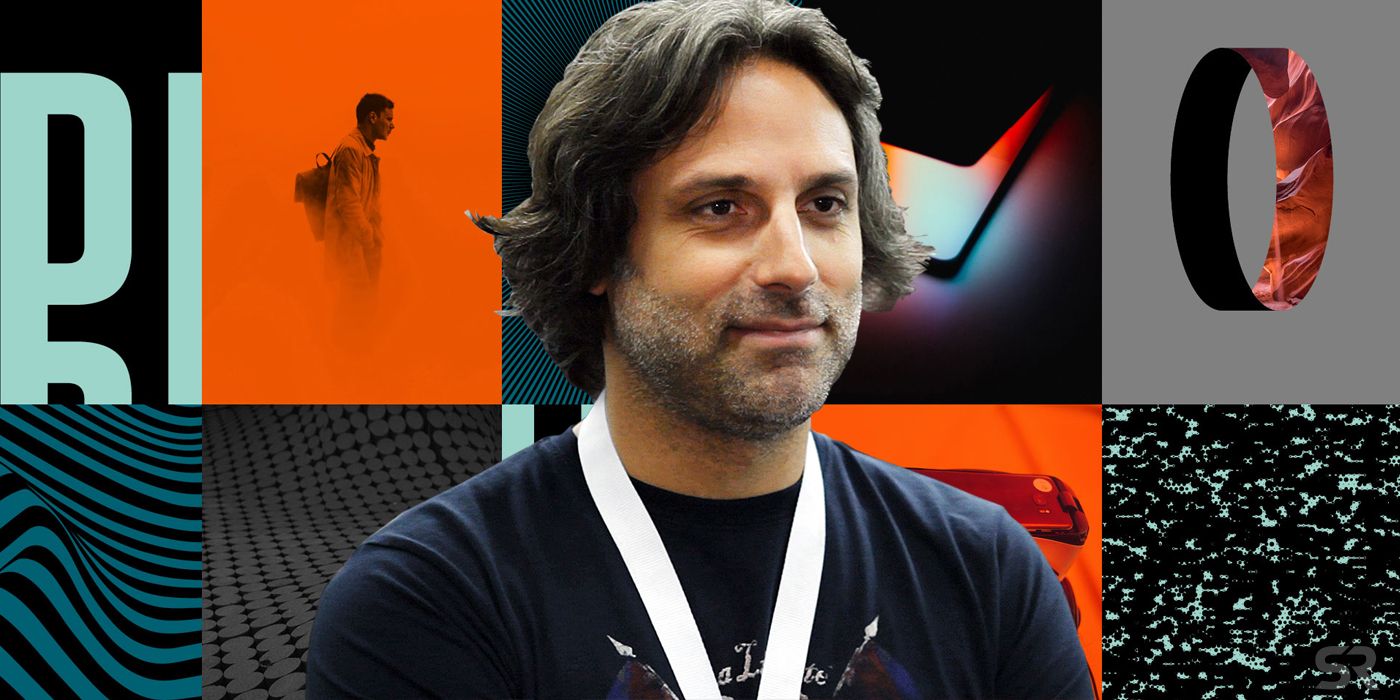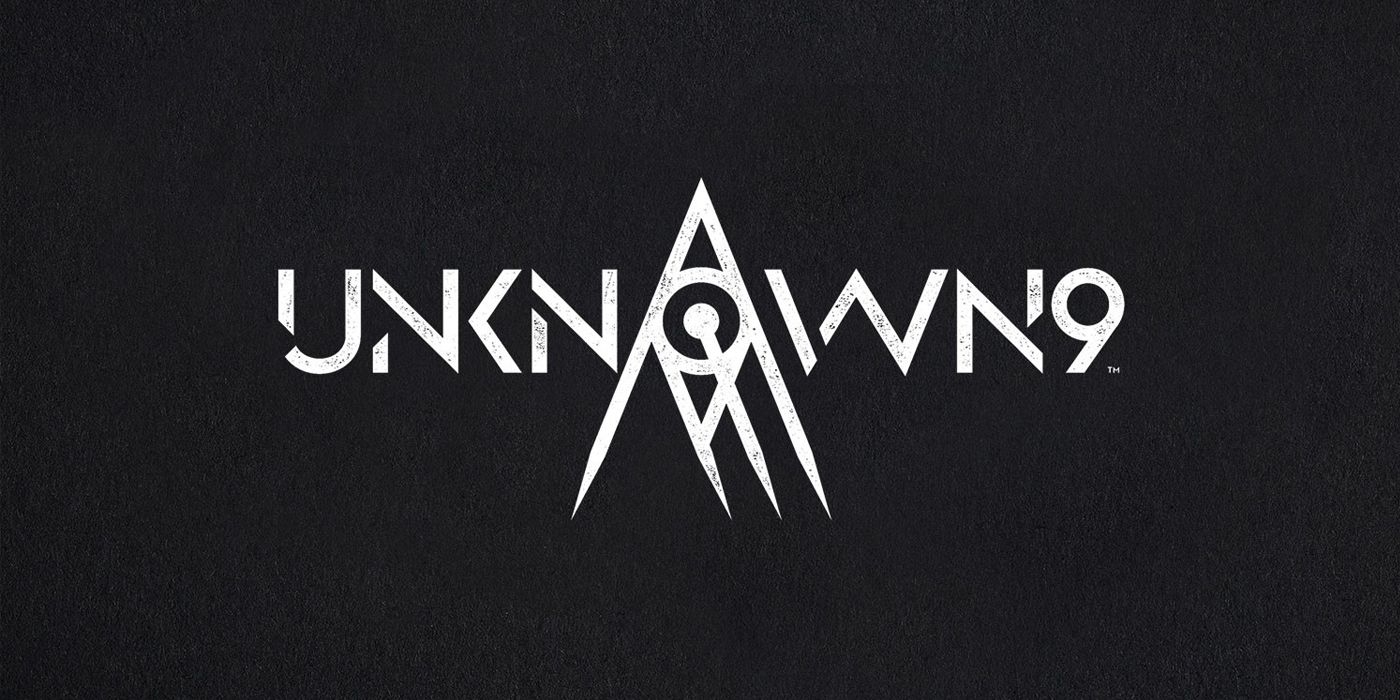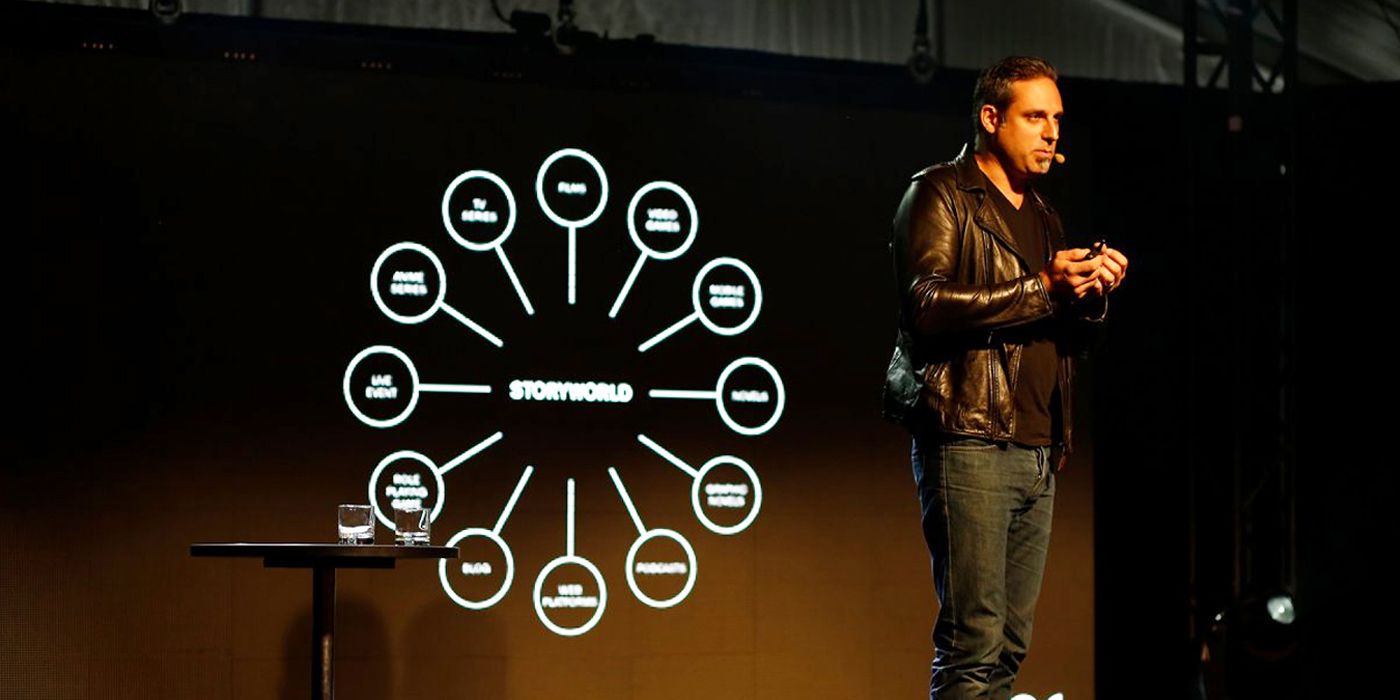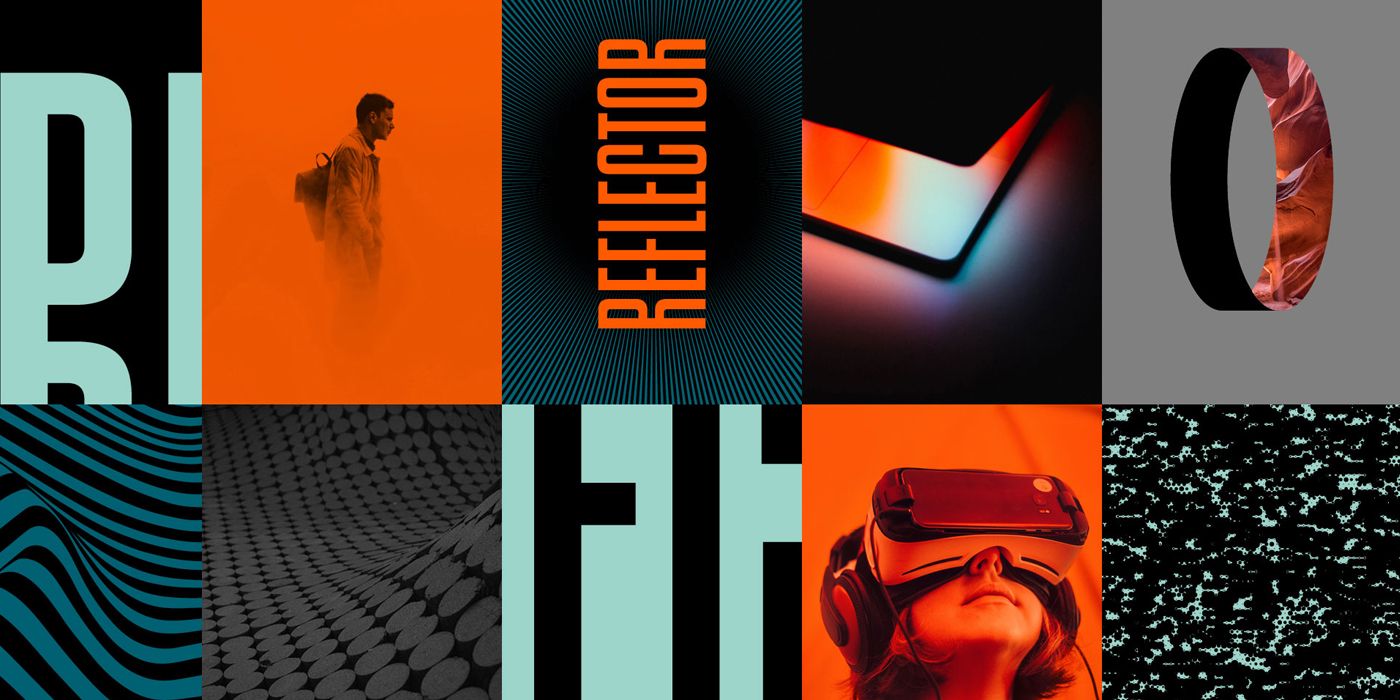
Former Ubisoft Montreal Creative and Artistic Director Alexandre Amancio is opening a new door in the world of entertainment through his new company Reflector Entertainment. No stranger to the gaming industry (he's worked on everything from the Far Cry franchise to Assassin's Creed), Amancio partnered with Cirque du Soleil co-founder Guy Laliberté to help usher the entire entertainment industry into a brand new era of consumer interaction. Lofty though this may seem, he and Laliberté have successfully crafted an innovative, multi-platform experience that incorporates a vast range of creative mediums to fashion an unprecedented entertainment experience.
We spoke with Amancio about his exciting new venture, and he revealed some exciting details about how Reflector Entertainment plans to shake up the status quo - not only in digital entertainment, but through a plethora of mediums ranging from video games and film to comic books and novels. While the company's projects are in the final stages of getting off the ground, Reflector Entertainment is venturing into some pioneering territory for which entertainment enthusiasts ought to be ready and excited.
Related: December 2018 Video Game Releases: What To Play Next Month
I saw the Comic Con trailer for Unknown 9, and it certainly caught my attention. And I was curious- what were some of your biggest inspirations that led to you and Guy coming up with this sort of multi-platform concept?
Alexandre Amancio: It's a combination of many things. In a past life, I used to work in the gaming industry, and looking at IP in a different way, looking at universes and not seeing them as being tied into a specific medium, and seeing them more as universes that are agnostic to the medium, and just seeing the mythology was always my approach. Even in my work on Assassin's Creed, that was part of the stuff that I was really pushing for; like pushing for an internal IP team, rather than giving away licenses to the property, getting involved in the actual creation of all of these different media adaptations, but doing it with key people from all of these different mediums, so that it was authentic; it didn't feel like something that was sort of diluted - a game story turned into a so-so comic book story. And, you know, during my time on the universe, on the IP, I really saw an amazing expansion of how people perceive the world, as not just being a comic book one or a video game one, but being a universe that had a sort of life unto its own. And I was always working within a company that viewed itself as a video game company. I was always sort of limited. And I hit a barrier at one point where we tried to sort of steer the film. And I realized that, fundamentally, it wasn't necessarily the company's fault, it was just the way that it's set up. Entertainment companies are set up as viewing themselves as - or even identifying themselves with - the principle media that brings in the revenue. And I envisioned creating a company that wasn't like that. And I started seeing, like years back, I started seeing that then we're actually consuming content in the way that I felt we should be producing it. We come from a world where big companies used to push content that people- you could actually can control the limited number of channels on each media, and if you put enough weight behind any initiative, people couldn't really look away, right? It was just there. But the world has shifted, right? Everything has become democratized. And, now you have a myriad of different producers and distributors of content, so fans have really taken to that, and I think that if you look at what large companies are saying, where, you know - let's say the movie industry - where they're looking back and asking "Where are the fans? Where are the lines at theaters? People aren't consuming film anymore." I think it's actually the opposite. I think fans have never consumed as much entertainment; it's just they're doing it in a way that is almost invisible to the way the big companies are viewing and distributing their content. So, that's sort of where the inspiration came from. Like, why not create content that lives outside of the media? And why not create it and distribute it in a way where fans can actually pull at it rather than having to push at it? So, it's more like IP or universe or world-building as a service, right? Where it's almost like a dialogue between us and the fans, and the way the community is reacting to the storytelling, the way they're catching stuff, and the way that they're flowing through one media to the other, actually helps us- it's sort of positive feedback where we do something, they react; and we react, and it becomes more like an impactive way of consuming content, rather than a passive one.

So, it's almost as if the entertainment industry is evolving, not just for the users, but with them. With the way that they are already interacting with the content that's out there.
Alexandre Amancio: Exactly. I mean, look, if you look at the way- my daughter's seven. She watches YouTube with her video window minimized, because she wants to see what's coming up next. She wants to see the content and the comments, and she wants to participate. It's more of an active experience, rather than a passive one. So, it's here. People are already- it's just that no major company is yet producing content in that way, because we're used to seeing the world through silos. My business model is the video game or the TV show or etc., and that's what we focus on. And everything is auxiliary. Stuff that we try to maximize to make a buck out of, whereas when you're looking at the IP itself, the evolving universe, then you can start doing stuff for fans, because, ultimately, even if you have a TV show, let's say, that loses money - let's say, for example, it's super high-quality - but the fanbase hasn't grown to a point where you can justify that it's making a profit. But it is high quality, and it is an investment; you're making up for it with the game. Then it's totally fine for Reflector to do that, because the loss leader strategy is part of the overall fan service, where, within a big company - even a company that possesses all of the different channels - they would never accept for one of their products to be running at a loss, even if they were making up for it in another one. So, it's just a different way of dealing with the fanbase and with the IP itself, and I think, ultimately, it makes it a better quality because you can make decisions that ultimately are for the fanbase or your community.
Now you're working with Guy, who has a background in Cirque du Soleil, and you've got a background in game development. Why does that create the perfect combination to bring this sort of project together?
Alexandre Amancio: That's a great question. When I left my previous company to sort of explore this new venue, this new way of doing stuff, I had no idea how to do it. I figured if I didn't try, then I would always look back and wonder what if I hadn't risked everything to do it. I literally did - I risked everything. And, through a completely unrelated series of circumstances, I met Guy because he was looking for somebody for a project. And I collaborated with him for a months, but always doing it pro bono, and just because I always believed in what he was doing. It was something that wasn't really entertainment-related; it was a huge sort of social impact thing that was all commentary, and it needed someone that had knowledge in a lot of different areas, and I happened to fit that bill. But I was doing it pro bono, and after a while, Guy just goes, "What's wrong? You don't like me? You don't want us to work together long term?" And I was like, "Dude, I totally do. I'm having fun, but I embarked on this journey to do this, and as interesting as this is, if I were to abandon it, I would always look back and regret it," and he said, "Oh man, I didn't know. I totally understand. And I'm the last person to tell somebody to let go of their dreams, however challenging they may be." So, he says, "Look, if you collaborate with me on this, I have no problem with you doing your stuff on the side, and even if you're doing something else that takes up a lot of your time, that's fine. I really would like to work with you on this specific project." So, we started working together; and, after a how months, he asked, "So, what is this thing you're working on?" And I explained what Reflector was, and it really fit with the way that he was also was envisioning the future of entertainment, so he said, "Look, I have a proposition for you. I would like for you to embark as sort of the chief creative- and, in exchange, I would like to come in as a partner with you on Reflector." And, so for the first couple of years- this was right after he sold Cirque du Soleil; so, for the first two years, I really worked with him, and we built a team, and we started a whole slew of initiatives on the side of this holding- This holding is called Lune Rouge, by the way - it means "Red Moon" in French. But Reflector kept growing, and after about two years, Reflector was starting to become very big, and I couldn't really juggle both anymore, so at one point, we decided mutually that I would focus more on Reflector and on really expanding that, and now I'm sort of more playing the role of- I'm on the executive board of his holding. But now I'm playing a much bigger- with Reflector. That's sort of how we came to be working together. I mean, it's rare in life that you meet somebody where you have a real creative connection where you don't have to explain everything because the words create the same images in your mind, and I think that's precious. I have a handful of people that I've met throughout my career that I can have that connection with, and I think no one as much as Guy, so it was just a natural collaboration.
The stars really aligned for you guys.
Alexandre Amancio: Oh yeah. Totally.

Related: Sony Patents A New VR Controller Sparking PlayStation 5 Rumors
I know there's a lot of mystery surrounding the whole platform itself, but is this sort of platform that someone who maybe is completely new to gaming can jump into fluidly? Or can they experience one aspect of this - or is it better if they experience all of it as a whole? Does that make sense?
Alexandre Amancio: Yeah, totally. And that's a great question. To answer it, it's actually very challenging to do it in the way that we did it, because our objective is... if you consume only one platform - let's say you just watch the film or you play the console game - you feel satisfied, because it's a loop onto itself. You have a beginning, a middle, and and ending, and you feel satisfied that you completed that whole narrative. But how do you create narratives that, when you start two or three, you get an enriched experience. So, very quickly, realized that you can't rely on cliffhangers and reveals. That's the easiest way to do it, but then, obviously if you consume it out of order, it doesn't work. Because the whole weight of the film- it's the result of the cliffhanger of the game, and if you watch the film first and the game afterwards, it sort of loses all its interest. The idea is that we were crafting these narratives where it gives you a peek into a completely different perspective. I'll give you an example. I'm making it up, so this is not something that we're doing. You're game is set in the 1920s, and you're playing this guy that's in the streets of Chicago that's going up the ranks of the mob. It's a guy with a good heart; he's doing it because - I don't know - maybe he came from a poor family, and he had to fight for everything on the streets, and then was able to essentially gain more and more notoriety, and become the kingpin of the city. But as you're progressing through the game, you're becoming more and more wealthy and more powerful, but you're essentially losing your soul. So let's just say that the game is a classic descent into darkness. It's the whole Colonel Kurtz thing. Apocalypse Now. You're going into the abyss and you're losing your soul. So, you finish the game; you've won the city, but you've lost your soul. Then, there's a film that is also set in the '20s, and the film starts with this- they're putting together this ragtag group of people from different backgrounds that are- to create this special task force, where they're going to infiltrate the mob, and they're going to actually go after this guy that's essentially terrorizing the city. He's the Keyser Söze of Chicago; almost a legend. And, then, when they show the picture, it's the guy that you played in the game. So, if you've not played the game, it's like, wow, it's this really cool- it's Keyser Söze meets Apocalypse Now meets Al Capone. But if you have played the game, then you're like, oh s***, I know exactly what happened. So, you get a whole different perspective. But if you go watch the film with one of your buddies, and you haven't played the game, but your buddy's played the game, you have a completely different take on the character. And, maybe, if you haven't played the game, afterwards you're going to want to find out what happened. But it doesn't matter if you played the game after or before because you're not ruining anything; you're just getting a whole new perspective, more complexity. So, that's the kind of thing we would do. So, you can either consume just one and have a satisfying story, because, again, we don't adapt stories; we don't turn a game story into a movie story or a novel- reduce it into an OK film. Every media has its strength and weaknesses. You know, a novel is really good for telling- it's experiencing what's inside the head of a character. It's not so much of a visual medium, whereas the film media is very visual, but it's no so good with inner voices, which is why sometimes they have to put in these annoying voiceovers that don't really fit with film. So, the idea is that by doing this, we can leverage the strength of every single media, and we don't sacrifice; we don't feel like we're diluting any pure story into a different media. So you get the individual narrative that should be very satisfying, but you also get an increasingly complex one. The more different medias you consume, the deeper you go into the rabbit hole, and the broader picture, and the more complex picture you get. So, it really depends on the fanbase. The real hardcore fans will want to do that. And, even beyond, under the individual media, we have this sort of platform that we're building for U9- it's actually an active form of storytelling where you're solving puzzles, you're following the breadcrumbs - like old websites - finding clues, using the community. The community that we're building- there are actually characters in our ongoing narratives. We did something about a couple of weeks ago when one of the fans discovered that one of the characters in the mythology was sort of going behind the organization's back and communicated with the fans directly, warning them about some shenanigans that are going on in the organization. And fans debated whether they should tell on this character, and one fan decided to tell on the character, and there were dire consequences. And, now, the fans are torn - the community - because they blame this guy for having sort of caused this situation. So, all of this stuff- this is not driven by us. We just set the pieces, and, depending on the fans, and how they themselves dealt with it, and what they decided to do, its actually informing the- now this character that we had created... we can no longer use the character in the future because something happened, right? So, of course, we don't do this for all of our layers of fans; the more you get into that hardcore fanbase, the more we give them. But we don't rely on just the regular fans to be that invested in the IP.
Related: Top 20 Video Games of 2018, According to Critics
Speaking of which, can you walk me through the various platforms that will be included in the- I believe it's referred to as a "storyworld?"
Alexandre Amancio: Yeah, so we call these universes storyworlds. It's just a term we use- it means an ongoing, organic universe. It's not static; it's moving. It's a living, breathing world that evolves through time. And Unknown 9 is the first IP that we're announcing - we have other ones in the pipeline - and the reason I'm mentioning this is because we don't do a cut and paste; we don't use all the same media for every single storyworld. We literally tailor the specific secret sauce- we tailor it to the DNA of that specific IP. So, for Unknown 9, there's an AIG component, which is typically very niche, but we're actually going to be doing something, I think late next year or the following year, that is a way to peer into that typically very niche element and make it a little more mainstream, but without diluting it and making it inauthentic for the fans that do like that very hardcore stuff. So, the AIG is one component. We have a comic book series that we're launching early next year. It's a series of nine comics, but we have other comic book series that are already in the works that are related to Unknown 9. We have a first novel that will also be released next year; but it's one of three, so it's a trilogy. And Layton Green, the same guy who's writing the first one, is also writing the second and third. The comic book - the first series, The 9 - they're illustrated by Jae Lee. We are working on a film; it's a feature film written by Josh Campbell and Matt Stuecken. We also have a TV series in development, but that's further off in the cycle, so it's early development. We are also developing a mobile game, so- I shouldn't actually call it a mobile game. It is done for mobile platforms, but we might release it on other platforms. But for now, let's call it a mobile game. We are also working on a console game that will also be released on PC. And we also have a documentary that we're working on. And, yeah, so this is what we call the first "story cycle." The way we've broken down the narratives- a storyworld is divided into story cycles, and each story cycle has an overarching theme. And there's a meta-narrative, and each story cycle is broken down into seasons, and these seasons are comprised of many different medias, so next year is what we call Year One. This has been a preview year, so we're starting to see stuff for next year. But next year is when we really get this started at a higher pace, and then we have these many different small seasons that we sort of internally break down into how we tell this ongoing story through all these different mediums.

What would you say are the biggest challenges in marketing a multi-platform experience that's as ambitious as this one?
Alexandre Amancio: We're learning as we're developing this. And we're purposefully- the way that we've done a sort of a soft launch this year, where we started talking about it and started building the community first, is a good indication of our approach. We want to be very authentic. I do believe in marketing, because you do need to get your story out there, but I think that we can do it in a different way by breaking down the paradigm and thinking about community first. So, one of the biggest hurdles that we ran into is typically all these different channels are controlled by different publishers or different distributors, so how do you align everything into a coherent road map when you might be essentially- sort of dependent on other companies and other calendars, right? So, a lot of times we've chosen to either self-publish in some cases; other cases, we find a partner that essentially believes in what we're trying to do, and they also think that this is the future of entertainment, and they want to sort of collaborate with us very closely to create a calendar that fits with our plan. So, it's a combination of all of that. We first always ask ourselves, "Does somebody in this world get what we're trying to do? If so, let's talk with them." And then once we start talking with them, we then try to figure out... they believe in this, so now does our strategy, our timeline align with theirs? And if no, we look for another partner; if yes, we move further with them. Ultimately, if all of the answers are "no," and there's no partner, or there is a partner, but the timeline doesn't fit, then we consider, "Why don't we do it ourselves?" And then we try to figure out if this is how it's typically done, is there a way that might be possible now that wasn't five or ten years ago - which is why companies are not doing it that way, but because we're starting from a clean slate - if we were to envision the perfect way, what would that be? And, sometimes, we actually come up with pretty cool stuff.
More: The Game Awards: 2018 Nominees Revealed
from ScreenRant - Feed https://ift.tt/2DUYFGh

0 comments:
Post a Comment